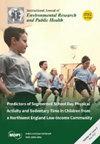COVID-19 医护人员和普通人群对疫苗接种的接受度和犹豫度:系统回顾与政策建议
3区 综合性期刊
Q1 Medicine
International Journal of Environmental Research and Public Health
Pub Date : 2024-08-28
DOI:10.3390/ijerph21091134
引用次数: 0
摘要
导言:COVID-19 大流行向科学界提出了挑战,即寻找和开发一种疫苗来对抗这种疾病。然而,在实现疫苗高覆盖率方面却出现了问题,甚至在医护人员(HCW)等高风险人群中也是如此。研究目的本研究旨在探讨影响医护人员和普通人群坚持接种 COVID-19 疫苗的因素,以及为医护人员和其他目标群体接种疫苗的国家政策。研究方法本研究采用系统回顾法。纳入的资格标准是高危工作者、COVID-19 疫苗接种的目标人群或普通人群。疫苗接种是目标干预措施,COVID-19 大流行是背景。我们选择了 2020 年 1 月 1 日至 2022 年 3 月 31 日期间发表的出版物。采用元聚合法进行定性综合。结果19篇文章被纳入综述,研究样本从48人到5708人不等。大部分证据来自横断面研究和定性研究。主要研究结果与疫苗的犹豫性而非接受性有关。与高危工作者对疫苗犹豫不决有关的因素包括主观感受,如对安全性的担忧、疫苗的快速发展以及测试不足。各国采取了很少的公共政策来解决这一问题,主要关注的是是否强制执行疫苗接种以及措施的合法程度。结论:证据基础的质量仍然薄弱。对疫苗接种的怀疑、不信任和犹豫不决是全球性问题,可能会危及疫苗接种的覆盖率。本文章由计算机程序翻译,如有差异,请以英文原文为准。
COVID-19 Vaccination Acceptance and Hesitancy in Healthcare Workers and the General Population: A Systematic Review and Policy Recommendations
Introduction: The COVID-19 pandemic challenged the scientific community to find and develop a vaccine to fight the disease. However, problems with achieving high vaccine coverage have emerged, even among high-risk groups such as healthcare workers (HCWs). Objective: The objective of this study is to examine factors that influence HCW’s and the general population’s adherence to COVID-19 vaccination and national policies to vaccinate HCWs and other target groups. Methods: This study implemented a systematic review. The eligibility criterion for inclusion was being a HCW, target population for COVID-19 vaccination, or general population. Vaccination was the target intervention, and the COVID-19 pandemic was the context. We selected publications published between 1 January 2020 and 31 March 2022. Qualitative synthesis used a meta-aggregation approach. Results: Nineteen articles were included in the review, with study samples varying from 48 to 5708 participants. Most of the evidence came from cross-sectional and qualitative studies. The main findings were related to vaccine hesitancy rather than acceptance. Factors associated with HCW vaccine hesitancy included subjective feelings such as safety concerns, rapid vaccine development, and insufficient testing. Countries have adopted few public policies to address this problem, and the main concern is whether to enforce vaccination and the extent to which measures are legal. Conclusion: The quality of the evidence base remains weak. Skepticism, mistrust, and hesitancy toward vaccination are global issues that can jeopardize vaccination coverage.
求助全文
通过发布文献求助,成功后即可免费获取论文全文。
去求助
来源期刊

International Journal of Environmental Research and Public Health
Medicine-Public Health, Environmental and Occupational Health
CiteScore
7.30
自引率
0.00%
发文量
14422
审稿时长
1 months
期刊介绍:
International Journal of Environmental Research and Public Health (IJERPH) (ISSN 1660-4601) is a peer-reviewed scientific journal that publishes original articles, critical reviews, research notes, and short communications in the interdisciplinary area of environmental health sciences and public health. It links several scientific disciplines including biology, biochemistry, biotechnology, cellular and molecular biology, chemistry, computer science, ecology, engineering, epidemiology, genetics, immunology, microbiology, oncology, pathology, pharmacology, and toxicology, in an integrated fashion, to address critical issues related to environmental quality and public health. Therefore, IJERPH focuses on the publication of scientific and technical information on the impacts of natural phenomena and anthropogenic factors on the quality of our environment, the interrelationships between environmental health and the quality of life, as well as the socio-cultural, political, economic, and legal considerations related to environmental stewardship and public health.
The 2018 IJERPH Outstanding Reviewer Award has been launched! This award acknowledge those who have generously dedicated their time to review manuscripts submitted to IJERPH. See full details at http://www.mdpi.com/journal/ijerph/awards.
 求助内容:
求助内容: 应助结果提醒方式:
应助结果提醒方式:


